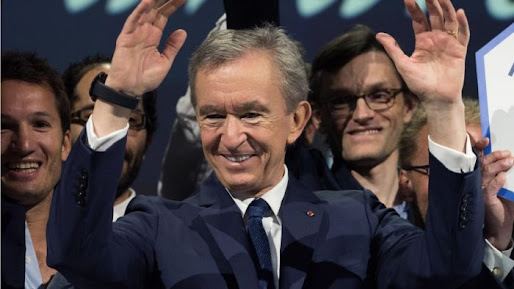A Year In Review by Mary Olushoga: Being a Nigerian Woman
Nigeria has a long way to go when it comes to supporting women’s rights and gender equality. Religion and culture affects how women are treated in society. These factors often hinder progress. This year was especially challenging for women and girls around the world. The world’s remaining superpower, the United States of America failed to elect its first female president. However, there were strides in other areas. For instance, Ilhan Omar was elected the first Somali-American lawmaker in the United States. In Nigeria to date, no woman has been elected governor, president, or vice-president. 2016 was just not the year for women and girls. Why?
The Gender and Equal Opportunities Bill was rejected. The Gender and Equal Opportunities Bill also known as the GEO Bill was voted against by Nigerian lawmakers. The bill sought to eliminate all forms of discrimination against women and girls. It should come as no surprise why this bill is necessary and needed. On a daily basis, women and girls in Nigeria are discriminated against solely on the basis of their gender, whether on the job or in society at large. On December 9, 2016, the senate public hearing on the GEO Bill was cancelled for the lack of quorum. Nigerian lawmakers do not deem women’s rights and gender equality important, so not only did they vote against the GEO Bill, they also did not even show up to achieve a quorum on the day the Bill was to be discussed.
President Buhari’s Comment about Women. To date, President Buhari is yet to apologize for his comments in Germany where he relegated women’s role to the kitchen, the living room, and the other room. President Buhari’s inappropriate comments were made in the presence of Angela Merkel, the first female chancellor of Germany. Merkel is also recognized as one of the most prominent world leaders. His comments came three days after the International Day of the Girl Child. What impact does such statement have on women and girls in Africa considering that Buhari is the current President of the most populous country on the continent? It means that there is no public leadership role for women and girls in Nigeria. It means that women and girls are not respected or seen as equals.
Sexual harassment and assault in Nigeria’s Prisons. Data from The National Council of Women’s Society reveals that 90 percent of female prisoners are either pregnant or nursing mothers. The organization therefore urged the Nigerian government to implement and create policies that would protect female prisoners. Many of these prisoners are reported to be poorly educated, from socioeconomically disadvantaged backgrounds and have some form of mental health problems. What can be done to protect this vulnerable group?
Terrorism in Internally Displaced Person Camps. On a daily basis, women and girls in internally displaced person (IDP) camps are raped and sexually exploited by security forces and vigilante groups. Many are drugged and coerced into having sex in exchange for food and other basic necessities. The Human Rights Watchreports that Nigerian government officials and other authorities have raped and sexually exploited women and girls displaced by Boko Haram. We can agree that more needs to be done to protect women and girls to ensure that they have access to basic rights, necessities and services.
Continuous kidnappings of women and girls. Nnamdi Obasi, Senior Adviser at the International Crisis Group reported the kidnappings of about 35 women on December 12, 2016 by over 100 armed bandits in Matankari village, Maru local government area, Zamfara State, Nigeria. These kidnappings are one of many to have occurred in 2016 that either went unreported or were not given adequate media attention.
The National Soccer Team were not paid. When will the talents of women and girls in Nigeria be taken seriously and respected? After winning the 2016 Africa Women Cup of Nations, the biennial international football championship organized by the Confederation of African Football for the women national teams of Africa. Nigeria’s national women’s football team, also known as the Super Falcons, were not paid their allowance and other bonuses after winning the championship. The nonpayment of their allowance led to a protest at the Nigerian National Assembly (NASS) and the Presidential Villa for a little over 9 days. This peaceful protest was also followed by an outrage on social media from Nigerian citizens in support of the team. The team began protesting on December 6, 2016 and were recently paid after the government felt publicly humiliated by the media.
I posted this question on social media, was 2016 the year for Nigerian women and girls? Andrew Alli, President of the Africa Finance Corporation responded, “There has never been a year for Nigerian women and girls as far as I can figure. They are probably the most marginalized in the country.” Juliet Kego Ume-Onyindo, engineer and leadership coach stated, “In some key areas we saw gains. There has been more focus on Girl-Child education especially in the North East. Advocacy continues for us all.”
My hopes for the coming year. As 2017 approaches, I hope that Nigeria and other African countries will work hard to implement and take seriously the UN Sustainable Development Goals. I hope that Nigerian lawmakers will do what is right and pass the gender equality bill. I hope that Nigeria will ensure equal rights for all, protect and provide security for women and girls. I hope that the Nigerian society will understand that women have an enormous role to play in Nigeria’s economic development progress and growth. I hope that Nigerian women will fight for their right and take what is rightly theirs to take. Women’s rights are indeed human rights.
Here are 14 Organizations Changing the Lives of Women and Girls in Nigeria. Feel free to add to the list: mary [at] awpnetwork.com



Comments
Post a Comment